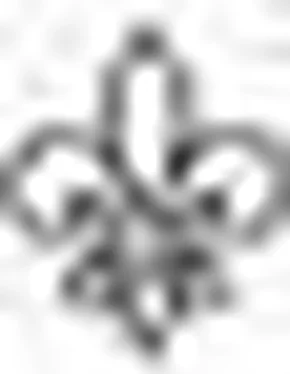T.F. Banks - The Emperor's assassin
Здесь есть возможность читать онлайн «T.F. Banks - The Emperor's assassin» весь текст электронной книги совершенно бесплатно (целиком полную версию без сокращений). В некоторых случаях можно слушать аудио, скачать через торрент в формате fb2 и присутствует краткое содержание. Жанр: Исторический детектив, на английском языке. Описание произведения, (предисловие) а так же отзывы посетителей доступны на портале библиотеки ЛибКат.
- Название:The Emperor's assassin
- Автор:
- Жанр:
- Год:неизвестен
- ISBN:нет данных
- Рейтинг книги:5 / 5. Голосов: 1
-
Избранное:Добавить в избранное
- Отзывы:
-
Ваша оценка:
- 100
- 1
- 2
- 3
- 4
- 5
The Emperor's assassin: краткое содержание, описание и аннотация
Предлагаем к чтению аннотацию, описание, краткое содержание или предисловие (зависит от того, что написал сам автор книги «The Emperor's assassin»). Если вы не нашли необходимую информацию о книге — напишите в комментариях, мы постараемся отыскать её.
The Emperor's assassin — читать онлайн бесплатно полную книгу (весь текст) целиком
Ниже представлен текст книги, разбитый по страницам. Система сохранения места последней прочитанной страницы, позволяет с удобством читать онлайн бесплатно книгу «The Emperor's assassin», без необходимости каждый раз заново искать на чём Вы остановились. Поставьте закладку, и сможете в любой момент перейти на страницу, на которой закончили чтение.
Интервал:
Закладка:
“Christabel?”
“Ma'am?”
“Tell me, why would a woman who made gowns for Josephine, and is an admirer of Napoleon, come to London and claim to be a staunch royalist, making gowns for the wives of all the prominent royalists-the people who have opposed Bonaparte from the beginning?”
“I don't know, ma'am. Why?”
“Because she is a spy, Christabel. She has been spying on Bonaparte's enemies here in England and is no doubt hoping that no one will ever learn the truth. I wonder what these foolish royalist women have been telling her? And all through the war she has had her French fabrics and lace-carried to England by the smugglers. Mr. Morton's friend Boulot is known to her, and he was a smuggler or a dealer in their wares. Who better to carry the things she learns back to France than a smuggler? And she was acquainted with Madame Desmarches, who was the mistress of the Count d'Auvraye. Too many coincidences. She is a spy, and perhaps her daughter is, too.”
Cristobal looked pensive, her pretty brow wrinkled in thought. “Who is Boulot, ma'am?”
“Never mind.”
Christabel turned to take her tea tray out.
“Christabel?”
“Yes, ma'am?”
“Would you take that bloody painting off the wall?”
“With pleasure, ma'am.”
CHAPTER 22
News of the death of the Count d'Auvraye must have reached Spanish Place by midmorning, but when Morton arrived in the late afternoon, the house seemed strangely untroubled, with no obvious signs of disorder or upset. A footman in mourning ribbons showed him silently into the same white and gold retiring room in which he had waited two days before. This time it also held John Townsend, who was quietly smoking and reading a copy of the Times .
“Ah, Morton, here you are. Good, good.” He tapped his paper before folding it. “Still no decision about Bonaparte. The cabinet in constant session, and the city in a turmoil. And now this Scotsman trying to get him ashore with legal stratagems! It is like a farce. Should he succeed, it appears His Majesty's government would be on very shaky legal ground indeed, as far as holding or charging him goes. Strange days, are they not?”
Morton nodded, then gestured upward, toward the private part of the house. “Have you spoken to them yet?”
“No, but we are promised an interview with the son, Monsieur Eustache.”
“I presume he has taken the title and is the Count d'Auvraye now.”
“ 'Tis so,” muttered the old man. Townsend's mood had grown more subdued since one murder had become three. “At any rate, he wanted to wait until you came, that he might hear directly about matters in Barnes.”
“It's Rolles I really want to talk to. Is he here?”
“I believe he is. But before we go up, tell me in private what you have found.”
As his elder colleague listened in sober silence, Morton did so, and then added, “I've sent Jimmy across to Maiden Lane to take our watcher from Boulot's rooms. Someone tipped Boulot to that, so he won't show his face there for a while, I don't imagine.”
“Unless he has money hidden away there,” Townsend said.
“Any money that cully had went into the bottle.”
Townsend nodded, distracted by something, it seemed. “What interests me,” he mused, “is your Mrs. Barkling's description of the tall Frenchman she wounded. I expect it's to be concluded this is Niceron.”
“Too soon to form conclusions, I daresay,” Morton answered, but smiled. “Perhaps you have turned this Niceron up, whilst we were in Barnes?”
“No, no, that I have not,” admitted the old man. “But you have noticed a certain discrepancy in the descriptions, perhaps?”
“I have,” agreed Morton.
“Still,” went on Townsend, “a large Frenchman, a supporter of Bonaparte, drops out of sight. Some days later a large Frenchman is reported killing a royalist count. It must be the same man. Yes, really it must,” he added as he rose to summon the footman.
A few moments later they were ushered into another room on the next floor. This was more genuinely a study than the old count's cabinet below, with fewer ornaments and more books. A long oaken table was covered with opened volumes and papers. Beside it, resting one hand lightly on its surface, stood the thin young man whom Morton had met on his first visit. Behind him, hovering deferentially, was Rolles. Both were clad in deep mourning, after the French style.
Eustache d'Auvraye bowed formally, and they returned the salutation. The face of the young count was pale against his black silks, but he showed no other sign of emotional disarray. His expression was grave, thoughtful, inward-looking. To Morton's covert eye, his movements as he bowed were precisely the same as they had been before. If this was a parody of courtly manners, it was one he practised habitually.
Having been previously introduced, Morton took the lead and presented John Townsend. The veteran Runner was greeted by another silent bow.
“I hope monsieur le comte will accept our most genuine and heartfelt condolences,” began Townsend, who was entirely in his element with elaborate displays of courtesy. “The death of your father, le comte d'Auvraye, is a great loss to the civilised nations. I think that I may safely speak, as his loyal officer, for His Royal Highness the Prince Regent, in adding his own profoundest personal regrets.”
Another bow, and the Runners caught this time a faint waft of perfume from the young man's garments. Eustache d'Auvraye's voice, when he spoke, was soft, melodious and, unlike the elder count's, slightly accented. Given the extravagant pretences of the odd old police man, it was also surprisingly polite.
“I must thank Monsieur. You are acquainted, then, with the Prince Regent?”
“Monsieur, I have that honour,” replied Townsend with some complacency. And in fact, it was even true, Morton reflected. After a fashion.
“He is an illustrious sovereign,” quietly pronounced the young Frenchman.
The son's manners were not, as one might have expected from a younger man, less formal than those of his father-if anything, they were more so. His bearing was stately, his gestures restrained, his self-possession complete. But somehow this was not off-putting. Though not so handsome as the elder count, he nevertheless had something indefinably superior, a charm, a delicacy even, that compensated.
“I have just come from Barnes Terrace,” Morton told him. “I understand that you wish to hear the particulars of the crime.”
“If you would be so good, monsieur.”
There was something else that distinguished son from father, Morton at this moment also remarked: the brightness of his black eyes, the complete, focussed attention, the stillness. Unless Morton was greatly mistaken, the new Count d'Auvraye was rather more intelligent than the old.
He told the count about his father's death, watching carefully the young man's reaction.
“No one, then, can identify my father's murderers?”
Townsend chose to answer. “As of yet, monsieur le
comte , we don't know who they were.”
“There is something, though,” Morton said. “A French expatriate named Jean Boulot had visited the count at Barnes last week. He called upon him again here the day before Madame Desmarches was found dead. He had come both times to ask the count to intercede for him with Monsieur Fouche in Paris, so that he might be allowed to return to France. I believe the count refused him.”
The new count did look surprised, and his pale brow furrowed. He turned and glanced enquiringly at Monsieur Rolles.
“Do you know this man, monsieur le comte ?” Morton asked.
Young d'Auvraye turned back and seemed to consider for a moment before answering, meeting Morton's eye steadily as he did. “Monsieur, I do not. But I was informed that a stranger had an interview in this house, at which I was not present. I did not know, however, that he had also called upon le comte d'Auvraye at Barnes Terrace. Were you aware of this, Monsieur Rolles?” he asked, without looking round again.
Читать дальшеИнтервал:
Закладка:
Похожие книги на «The Emperor's assassin»
Представляем Вашему вниманию похожие книги на «The Emperor's assassin» списком для выбора. Мы отобрали схожую по названию и смыслу литературу в надежде предоставить читателям больше вариантов отыскать новые, интересные, ещё непрочитанные произведения.
Обсуждение, отзывы о книге «The Emperor's assassin» и просто собственные мнения читателей. Оставьте ваши комментарии, напишите, что Вы думаете о произведении, его смысле или главных героях. Укажите что конкретно понравилось, а что нет, и почему Вы так считаете.











